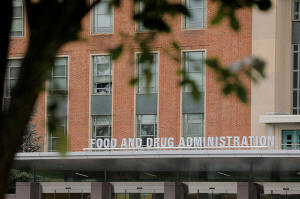US FDA panel votes against first MDMA-based PTSD treatment
 Send a link to a friend
Send a link to a friend
 [June 05, 2024]
By Sriparna Roy and Pratik Jain [June 05, 2024]
By Sriparna Roy and Pratik Jain
(Reuters) -Advisers to the U.S. Food and Drug Administration on Tuesday
voted against a therapy based on the mind-altering drug MDMA for
patients with post-traumatic stress disorder, marking a setback to the
nascent field of psychedelic treatments.
The panel voted 10-to-1 against the first MDMA-based PTSD treatment,
saying the benefits did not outweigh its risks, while nine members said
the available data did not show its effectiveness in PTSD patients.
Much of the panel's discussion centered on the way the trials were
conducted, as well as issues pertaining to their design and data
collection.
"It seems like there are so many problems with the data - each one alone
might be okay, but when you pile them on top of each other, there's just
a lot of questions still I would have about how effective the treatment
is," said Melissa Barone, a panel member who voted against the
treatment's benefits.
The agency is not required to follow the panel's advice, but usually
does so and is expected to make its final decision by August.
Commonly known as ecstasy or molly, MDMA has long been seen by advocates
as a potential treatment for mental health disorders and to have
therapeutic applications beyond their illicit use.
The treatment, a capsule form of MDMA made by public-benefit corporation
Lykos Therapeutics, is intended to be administered along with sessions
of talk therapy by a licensed mental health provider.

Other non-profit medical groups, including the Institute for Clinical
and Economic Review (ICER) and American Psychological Association, had
earlier said there was "insufficient" evidence to show the benefits of
the MDMA-assisted PTSD treatment.
[to top of second column]
|

Signage is seen outside of the Food and Drug Administration (FDA)
headquarters in White Oak, Maryland, U.S., August 29, 2020.
REUTERS/Andrew Kelly/File Photo
 An ICER report also highlighted
concerns related to inappropriate therapist behavior in a mid-stage
study, which majority of the panelists said was concerning.
On Friday, staff reviewers raised concerns that patients in the
trials were aware of whether they were given MDMA or a placebo due
to its psychedelic effects, preventing an objective view of how well
the drug worked.
The FDA said there was a "striking lack" of documentation of
abuse-related adverse events, which may limit the agency's ability
to explain the effects of MDMA or determine its abuse liability.
"I can't in good conscience support something where these many harms
are being reported," said patient representative Elizabeth Joniak-Grant.
More than 190 patients, who received doses of MDMA in addition to
therapy, showed a significant reduction in PTSD scores compared to
placebo.
"We are disappointed in today's vote given the urgent unmet need in
PTSD," Lykos CEO Amy Emerson said in a statement.
PTSD affects 13 million Americans and is especially common among war
veterans.
(Reporting by Sriparna Roy and Pratik Jain in Bengaluru; Editing by
Shinjini Ganguli, Anil D'Silva and Subhranshu Sahu)
[© 2024 Thomson Reuters. All rights reserved.]This material may not be published,
broadcast, rewritten or redistributed.
Thompson Reuters is solely responsible for this content. |